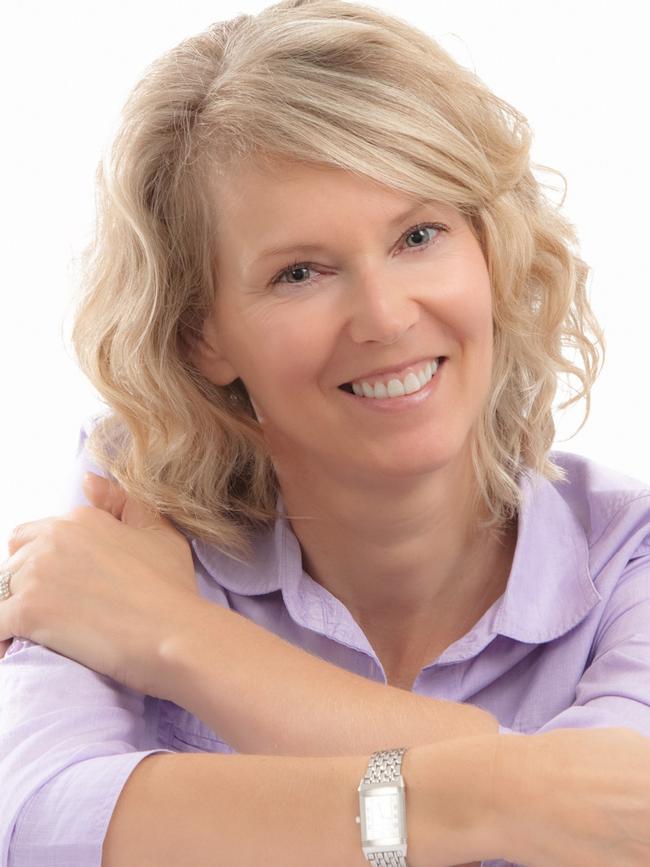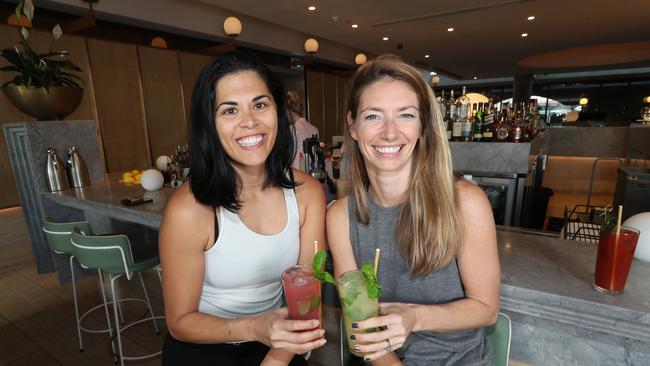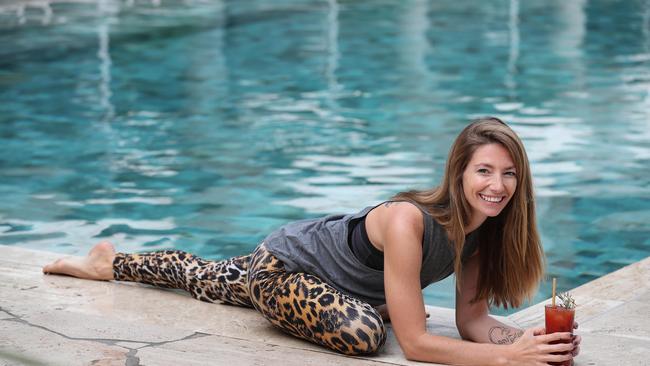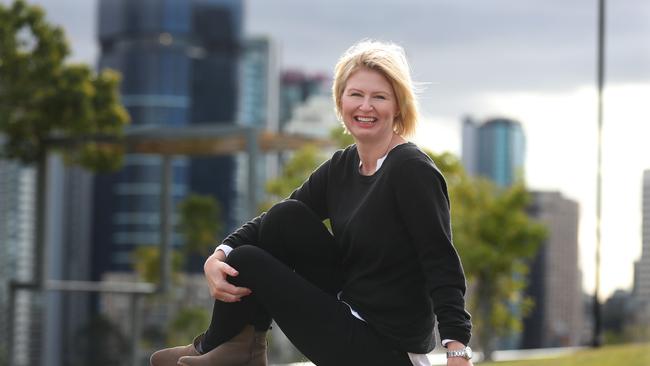Queensland women treated for alcoholism at soaring rate
Middle-aged Queensland women are being treated for alcoholism at alarming rates with experts reporting the state is now seeing the devastating effects of the “supermum complex”.
QLD News
Don't miss out on the headlines from QLD News. Followed categories will be added to My News.
MIDDLE-AGED Queensland women are being treated for alcoholism at alarming rates with experts reporting the state is now seeing the devastating effects of the “supermum complex”.
The admission rate to Queensland Health’s Hospital Alcohol and Drug Service (HADS) has almost doubled in the last 10 years for women aged 46 to 55, while the trend is down for women under 25 and steady for those between 26 and 45.
“Women in this late 40s into 50s age group are in an unacknowledged crisis,’’ neuroscience researcher Delia McCabe told The Sunday Mail.
“Many have tried to have it all. For more than a decade they have juggled babies and high-powered jobs and now they have aged parents to look after. They are under immense pressure. “Women’s brains are not the same as men’s. Hormones can impact how the brain reacts to stress and when the brain is imbalanced often the woman will reach for something to help them cope and it’s usually a glass of wine,” the Gold Coast researcher who has a masters in psychology and is completing a PhD on the neurobiological effects of nutrition on female stress, said.
On top of the demand for public rehab beds, others are paying for spots in the state’s private facilities.
13 per cent of Aussies seeking help for drug and alcohol problems are children
Queenslanders second most unhealthy in the country, new survey reveals
The researcher says women have been led to believe that the wine o’clock culture is harmless. But she fears that the overload of the social media memes about ‘mummy’s super juice’and “it’s mummy’s right to drink” that has helped bolster a drinking culture for women at home. The “we need more wine” populist message has been very damaging.
“Addiction can come easily as women pour themselves drinks to cope with dinnertime chaos and that can lead to a whole bottle. There is no measuring the drinks and glasses are huge,” she said.

The National Health and Medical Research Council (NHMRC) defines binge drinking as more than four standard drinks per night.
“Most women would not be aware they are bingeing” Ms McCabe said.
The Australian Institute of Health and Welfare report 2018 shows that one in seven people consumed 11 or more standard drinks at least once in the previous year.
While men make up the lion’s share of admissions to the state’s detox centres, Dr Mark Daglish, director of the RBWH Hospital Alcohol and Drug Service and addiction psychiatrist reports a trend where women are drinking more and catching up with men.
“I think what has happened over a longer time period is that women’s drinking has become more accepted. People don’t slam women for drinking and I think women’s drinking patterns are starting to match men’s drinking patterns,” Dr Daglish said.
There would be many Queenslanders being treated for alcohol abuse in private clinics. Queensland Health says that only one third of people attending the public health clinics were self-referred. Most were referred by community bodies or medics.
“One of the big problems with alcohol and drug services across the board is that a lot of people who need them never in their lifetime seek help,” he said.
The addiction expert says that drinking patterns are established in youth with drinking outside the home in pubs but more problematic drinking tends to be at home.
HADS has limited resources with only 16 beds which are in constant high demand. While the detox is a 14-day stint the mean length of stay is five days.
Sean Popovich who is Treatment Services Support Manager at The Queensland Network of Alcohol and Other Drug Agencies (QNADA) points out the dangers of drinking at home.
“We have an ageing population so it’s a possibility that we are seeing people whose drinking patterns in their younger years are simply continuing as they age. I think with a strong focus on the harms associated with binge drinking and public intoxication, sometimes we forget that lower level at-home drinking can be harmful. People who are drinking at risky levels at home may simply not identify their drinking as a potential health risk because they think ‘well, I’m not out there causing trouble’” he said.

The findings of a nine-year study by QIMR Berghofer and Princess Alexandra Hospital released this month found that there was a 62 per cent increase in the number of patients
being treated for cirrhosis at Queensland hospitals, from 2701 admissions in 2008 to 4367 in 2016. Alcohol misuse was a contributing factor in 55 per cent of those cases. The overall deaths from cirrhosis-related admissions to hospitals was 9.7 per cent for males and 9.3
per cent for females.
Drinking more than two standards drinks on any day raises the risk of premature death over
a woman’s lifetime. Four standard drinks per day boosts the risk of death 10 times compared to one standard drink per day.
“Women need urgent help in every day life. They need more support in the home and the workplace. They are carrying too much of the burden,” Ms McCabe said.
PARTY’S OVER, NOW IT’S YOGA
Katie Delimon was the New York party girl who traded it all in for a healthy life in Queensland.
”I went to a big party college and lived in New York City so I’ve been exposed to a big drinking culture, but I don’t reallydrink much these days,” she said.
The 33-year-old US yoga instructor, who now calls Brisbane home, said the decreasing rate of younger female drinkers is linkedto a broader knowledge of physical and mental wellbeing.
“There’s a difference between having a drink with friends and drinking to that borderline binge level,” she said. “More peopleare realising it isn’t a sustainable lifestyle.”

Ms Delimon said social media has allowed us to be more “open-minded” about the issues of alcohol as a coping mechanism, believingit has become more acceptable to talk about feelings and emotions.
“More people are aware and are talking about it” she said.
“If we are drinking less as a form of coping … we are going in a better direction.”
The yoga instructor said a lot more people aged in their early 20s are attending her yoga classes as a form of socialising.
“Socialising around healthy lifestyle choices are definitely going to help you have activities that don’t centralise aroundalcohol,” Ms Delimon said.
I USED BOOZE TO KEEP ME GOING
Some say life begins at 40, but the increasing rates of alcohol consumption in older women could be cutting it short.
For the best part of almost two decades, Faye Lawrence was a high-functioning alcoholic, but after myriad medications, therapyand counselling that spanned from 2001 to 2017, she finally kicked the booze.
The 45-year-old mother is now living life to the full, saying our culture is too centralised around alcohol and advocatingthe need for “removing the stigma” surrounding problem drinking.
“There is very little people do without alcohol,” she said.
“Its pervasive, it’s so socially acceptable.”

Ms Lawrence said the rise in female alcoholism was because “women are facing so much pressure at that age” and believe they “don’t have the time to turn to healthy coping mechanisms”.
“They’ve probably got kids at home, demanding paid work, significant debt from a mortgage and probably got ageing parentsas well,” she said.
In 2018, Ms Lawrence started the Untoxicated meet-up group, a alcohol-free safe space for sober and non-sober people.
The group’s aim is to bring in sober-curious people and normalise socialising without alcohol.
“(Sober groups) don’t have to be sitting around crying into your Diet Coke – they can be fun and you can still be around coolpeople,” Ms Lawrence said.
The group has more than 1300 members with weekly 20-person catch-ups organised across the city.


